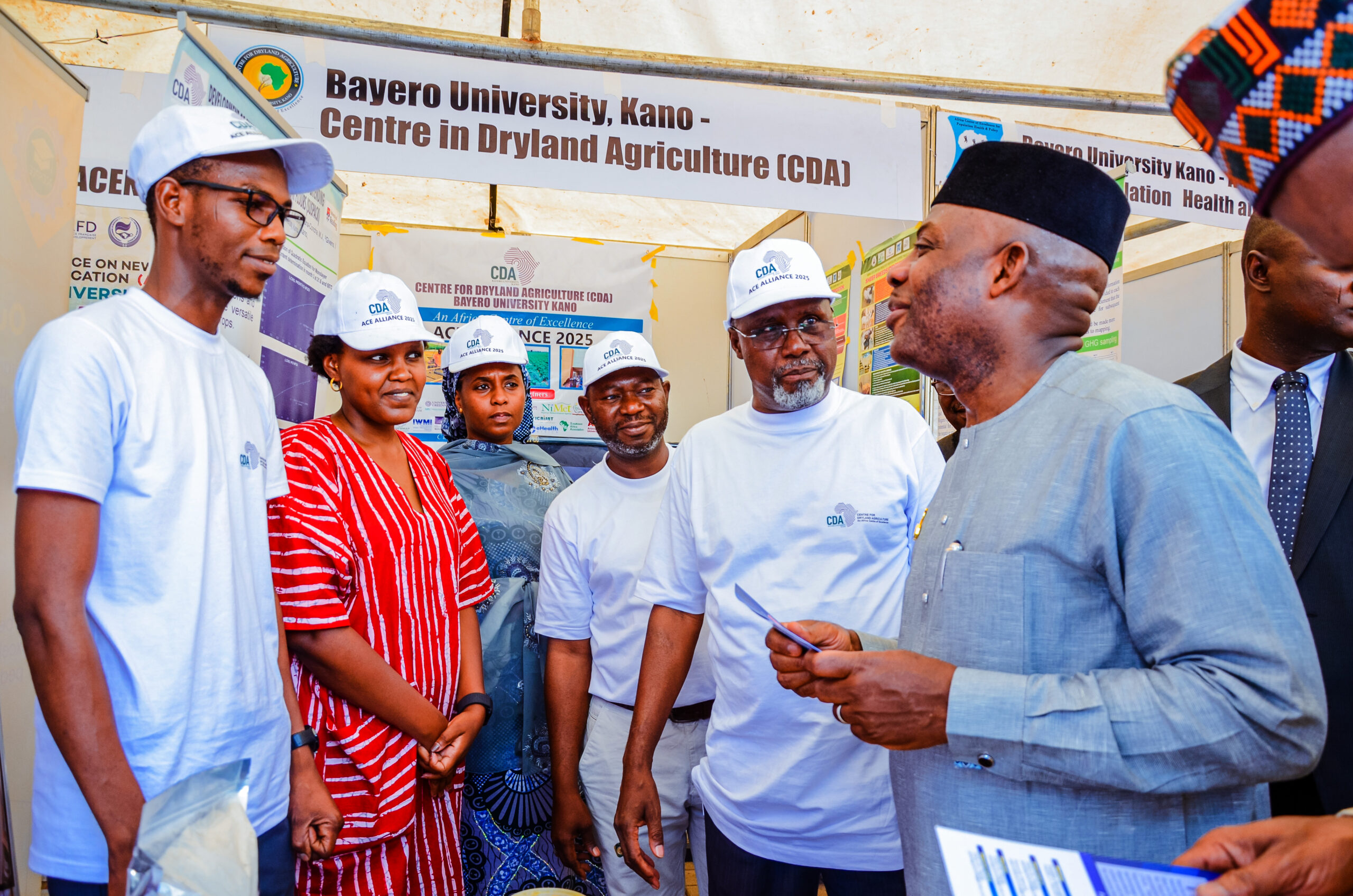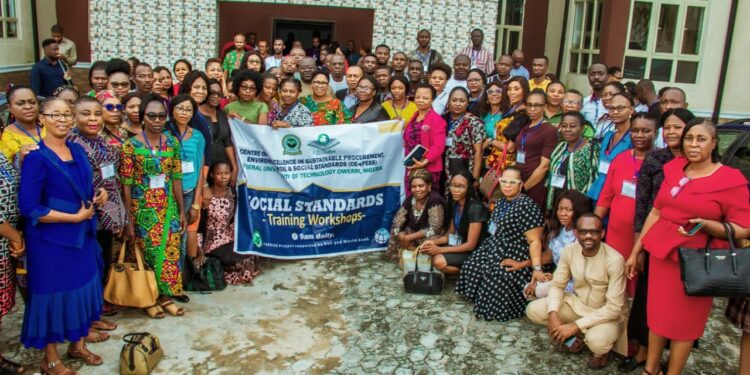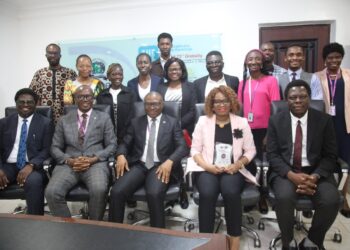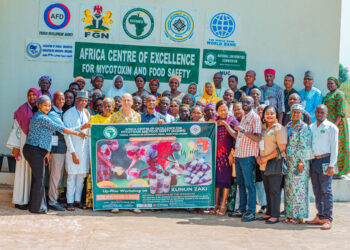By Yvonne Orekyeh
Nestled in the bustling commercial capital of Imo State, the Federal University of Technology, Owerri (FUTO), hosts the Centre of Excellence in Sustainable Procurement, Environmental and Social Standards (CE-sPESS), one of six Centres established under a World Bank-supported initiative aimed at developing sustainable capacity in managing procurement, environmental, and social safeguards in the public and private sectors in Nigeria. CE-sPESS aims to provide innovative and sustainable capacity building and professionalism in sustainable procurement, environmental standards, and social standards to meet the needs of the public and private sectors in the country and the Africa region.
Like its contemporaries in northeastern, northwestern, southwestern, south-south, and north-central Nigeria, CE-sPESS was established after a rigorous selection process from which the best proposals were selected from six universities across the six geopolitical zones in Nigeria. CE-sPESS, like the others is expected to offer innovative programmes which did not exist in the Nigeria University System (NUS) before the launch of the Sustainable Procurement, Environmental, and Social Standards Enhancement (SPESSE) Project.
Led by Centre Leader, Professor (Engr.) Gloria Chukwudebe, CE-sPESS is determined to be a world-class centre for training and developing highly skilled professionals in Procurement, Environmental Standards and Social Standards (PES). It adopts the triple helix model by integrating the public and private sectors and the academia in the delivery of its programmes.
To cater to the needs of a wide range of participants, and in line with the SPESSE Project’s objectives of developing a critical mass of professionals in PES, the Centre is expected to offer courses in five tracks, A, B, C, D, and E. Track A, which refers to executive short courses, has already been launched in CE-sPESS and these are targeted at enhancing the skill sets of managers, supervisors, procurement officers, safety and social work professionals from the public service, private sector, and civil society organisations as well as unemployed graduates. So far, CE-sPESS has trained a total of 1,850 participants, 61% of whom are females.
The Centre has also commenced Track B (advanced certificate programmes) for middle-level and technical personnel who require more in-depth knowledge to improve workplace productivity and efficiency. It has enrolled no less than 350 participants, a good number of whom are set to graduate in the coming months.
For persons who already possess a university degree or a Higher National Diploma (HND), CE-sPESS offers a post-graduate diploma (Track C) in procurement, environmental standards, and social standards. This component as well as the Centre’s bachelor and master programmes (also in all three fields) have been endorsed by the National Universities Commission (NUC) and will commence before the end of the year.
The COVID-19 pandemic and its attendant lockdown, as well as the protracted industrial action by the Academic Staff Union of Universities (ASUU) in 2020, had dire consequences on the activities of CE-sPESS so, to forestall future disruptions to its academic activities, the Centre adopted a hybrid model of learning, where lectures are delivered both in person and online, by a plethora of seasoned professionals drawn from the FUTO community, the international community, as well as both the public and private sectors.
In a bid to facilitate online course delivery, training and workshops, infrastructure for High-Performance Computing (HPC) and a Learning Management System (LMS) were deployed in the Centre, along with LMS devices such as interactive flat-screen display. To ensure the optimisation of the infrastructure deployed, staff of the Centre who are expected to be involved in the use, management, and maintenance of LMS were trained by the NUC. Staff trained included ICT officers of the Centre.
An expected outcome of the SPESSE Project in participating universities is that the benefits of the project will cascade to other departments and units within the host university. Cognisant of this, CE-sPESSorganised a workshop for staff from the university’s ICT Centre and faculty drawn from various departments within the university, on hybrid learning and the use of the LMS. In less than three weeks after the workshop, over 1,060 lecturers and students were created in the FUTO Moodle space.
CE-sPESS attributes its many successes to the dedication and commitment of the Vice-Chancellor of FUTO, Professor Nnennaya Oti, the World Bank Task Team Lead (TTL), and the co-TTLs on the SPESSE Project, as well as the guidance of the Independent National Facilitation Unit, NUC, under the leadership of the National Project Coordinator, Dr Joshua A. Atah.
































